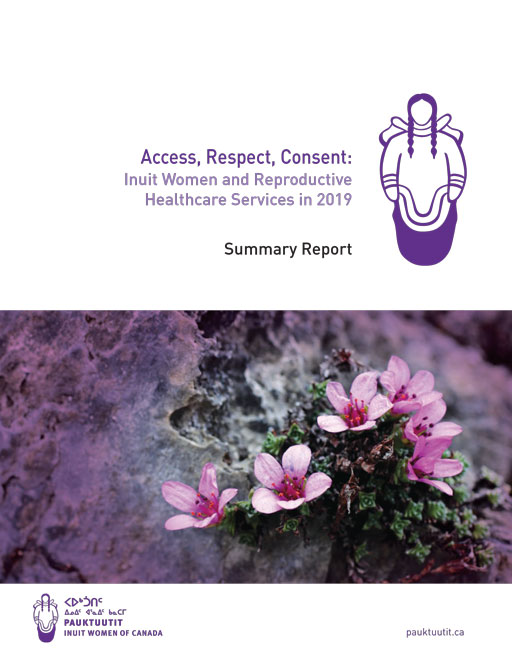Reproductive Health Rights
While we have heard stories and have anecdotal information around the forced and coerced sterilization of Inuit Women, the disregard of Inuit Women’s’ rights to free, prior and informed consent by health care providers, and other tragic lived-experiences by Inuit women, this subject requires investigation including a needs assessment and consultation to understand the full impact on our communities.
The Government of Canada has agreed to adhere to the UN Declaration on the Rights of Indigenous Peoples of free, prior and informed consent, and the Truth and Reconciliation Commission’s Calls to Action recognizing the fundamental and distinction-based rights and needs of Indigenous populations in Canada.
Systemic factors such as lack of infrastructure, racism, stigma, discrimination, access, and cultural competency need to be addressed together with the education of Inuit women around their right to free, prior and informed consent, their reproductive rights, and their health care rights.
It is not the sole responsibility of Inuit women to be informed of and about the health care they deserve and seek, but also the responsibility of all health care and service providers to ensure free and prior informed consent for and from Inuit women, as well as a provision of safe and culturally appropriate care.
Pauktuutit is working closely with the First Nations Inuit Health Branch of Indigenous Services Canada in response to calls for progress on coerced sterilization.
